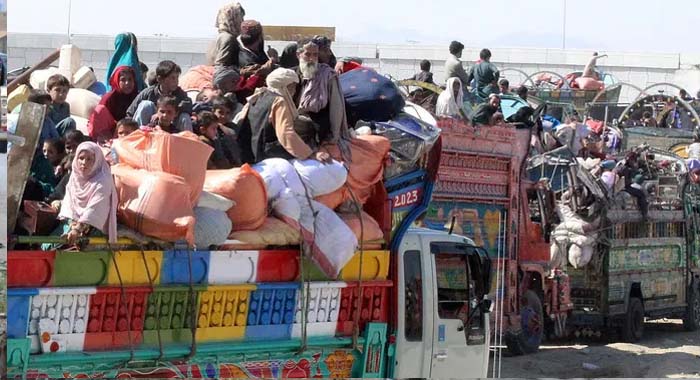Pakistan has begun a large-scale crackdown on Afghan migrants after the expiry of their residency permits, targeting more than 1.4 million individuals across the country. The move has triggered severe congestion at major border crossings, particularly Torkham, and drawn urgent calls from international organizations for Islamabad to halt the deportations.
The Ministry of Interior has directed law enforcement agencies to conduct daily operations to locate, detain, and deport Afghans whose Proof of Registration (PoR) cards expired earlier this week. Police confirmed that search operations are under way in cities including Rawalpindi, where several Afghan nationals have already been detained.
Authorities estimate that, in addition to 1.4 million PoR cardholders, around 800,000 Afghans with Afghan Citizen Cards (ACC) are residing illegally in Pakistan and are also subject to deportation. Officials emphasized that no undocumented foreign nationals would be allowed to remain in the country.
The crackdown has intensified congestion at the Torkham crossing, where thousands of Afghans have gathered in recent days in a desperate bid to return. Long queues of vehicles, families with limited belongings, and chaotic scenes of uncertainty have highlighted the humanitarian dimension of the exodus.
Human rights organizations, including the United Nations High Commissioner for Refugees (UNHCR), have repeatedly warned Islamabad against forced returns, calling them a potential violation of the principle of non-refoulement. Amnesty International said Pakistan’s “Illegal Foreigners’ Repatriation Plan” lacked transparency and risked exposing Afghan families—already displaced by decades of conflict—to further economic and social instability.
Reports from Islamabad describe Afghan families, including members of the Hazara minority, taking shelter in public parks under makeshift tents and plastic sheets after being evicted from their homes. With little food or medical care, they face deteriorating conditions amid the looming threat of deportation.
Since late 2023, rights groups estimate that more than one million Afghans have already been forced to leave Pakistan, with the latest phase marking the most sweeping action to date. Vulnerable groups such as women’s rights activists and minorities have voiced particular fears of persecution if returned to Taliban-controlled Afghanistan.
Prime Minister Shehbaz Sharif’s government has defended the policy as a necessary measure to regulate migration, citing security and economic concerns. Officials reiterated that the state’s resolve remains firm in ensuring no undocumented migrants remain on Pakistani soil.
International observers, however, continue to call for dialogue between Pakistan and Afghanistan to establish a more humane process. They warn that large-scale deportations risk destabilizing border areas and compounding the humanitarian crisis, particularly for families already grappling with displacement, poverty, and insecurity.





